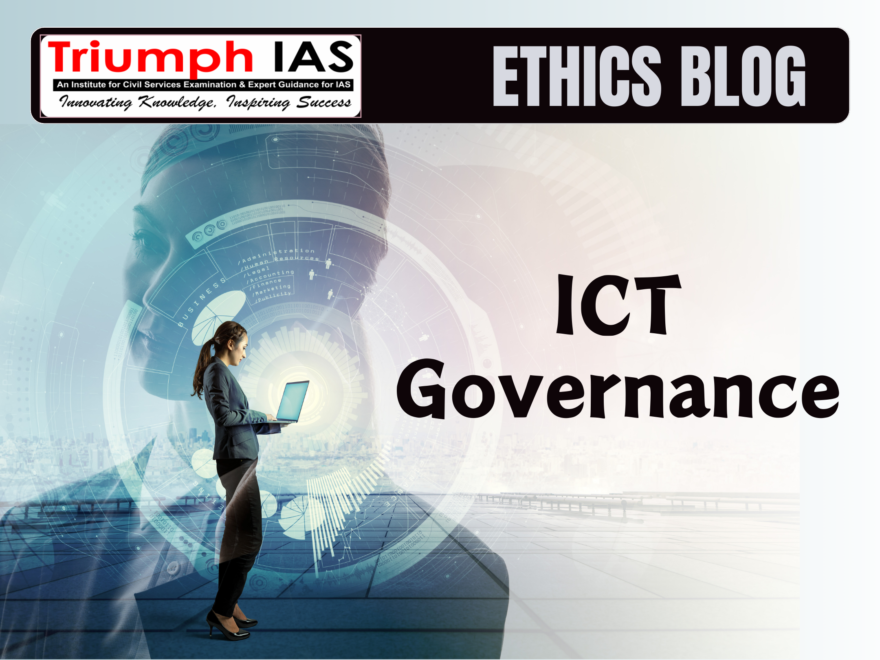ICT Governance
[Relevant for Public Ethics, Integrity and Aptitude]

ICT Governance
Vis-à-vis International Ethical Equity
Today there is lots of discussion regarding the model a nation would use in the ICT governance. There are two models of it
|
Multistakeholder or / and Multilateral: Principles Multistakeholder Collaborative Leadership Among Stakeholders with Expertise and Commitment to Particular Problems Multilateral/Intergovernmental Sovereign right of governments to determine Internet policy and regulation |
Multi-lateral – only Sovereign nations are involved
Problems with Multilateralism
|
Multi-stakeholder – Harris Gleckman defines multistakeholderism as “a new emerging global governance system that seeks to bring together global actors that have a potential “stake” in an issue and ask them to collaboratively sort out a solution”. Hence, in multistakeholderism, “stakeholders” become the central actors along with sovereign states.
India and most of the global south nations have favoured multi-stakeholder model while the rich nations US and Western European wants to have multi-lateral model.
Apart from this there are also other issues as far as who owns the data that is domestically generated by third world nations when they use the IT platforms and SN sites mostly owned and operated by US with most of them also having their main servers also located there. Data, remember, is the new oil of world economy as British mathematician Clive Humby declared in 2006.
|
Problems with Multistakeholderism
|
Issues involved:
- What are the key threats to a shared global data and communications system?
- What are the possible responses and initiatives already underway that we might build upon?
- What actions might be taken in the short term?
- What longer term initiatives might be effect, including building new global governance institutions?
The challenges identified can be classified into two main categories:
- Specific issues arising from the rapid development of information and communications technologies including issues associated with the transfer, trading and storage of data (freedom of data flows, privacy, consumer protection), maintaining an environment conducive to competition and innovation, cybersecurity, election tampering, child protection the impacts of adopting artificial intelligence and innovations in Fintech.
- Challenges associated with growing geopolitical conflicts arising from differences in value systems around the world and concerns about future national competitiveness in the global market that may results in the barriers to global data flows and fragmentation of communications systems and the Internet which may, in turn, risk of higher costs; more friction; less integration; less innovation, and reduced ease of use for consumers.
Scientific Research Agendas and Projects
Science has been a driver of international and global development. Different research fields have different contexts and so research ethics may be more contextual and international ethics than follows various contextual offerings and multidimensional. International ethics may also have a lot to do with the new and current epistemologies that are bound to shape the thinking of present and future generations. The question of discovery of scientific truths or scientific laws may be also a matter influenced in some respects by ideas on international ethics.
#EthicsBlogoTerms
Related Blogs …
 |
 |
Follow us :



Find More Blogs…
| Compare and contrast Karl Marx’s and Max weber’s | Karl Marx- Historical Materialism |
| Position of Women In the Modern Indian Society | Sociology: Social system and pattern variables |


